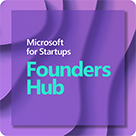Pointers is a startup that is “taking the guess work and arduousness out of talent development.” Their flagship product is an AI-powered platform for personal and professional development. We recently chatted with Neetu Razdan, founder and CEO at Pointers to understand their story of launching with AI.
Tell us about Pointers
Pointers is a productivity and performance management platform empowering organizations to build deeper and valuable relationships with their human assets resulting in increased retention, engagement, and growth. The platform develops a symbiotic data integration platform between organizations’ and individuals’ goals, skills, and competencies, enabling Pointers to process, describe and prescribe actional insights to end-users as both data-driven organizations and professionals.
How does Pointers leverage AI?
AI enables Pointers to build and curate personas for organizational roles and designations, then add bias for each type of organization, enabling personalized recommendations aligned with both corporate and individual growth. Such personas do not profile one individual but a role in an organization by creating the average required skills and competencies and then prescribing the skill gap.
Specifically, AI-powered natural language processing (NLP) helps the Pointers platform extract positive and negative indications and intents of one’s skills. Our algorithms extract skills and competencies being praised or recommended for an upgrade, while through indirect processing, the model extracts the root causes of such feedback and comments. An example of indirect extraction is when a non-technical role gives negative feedback on technical skill, which means it does not directly indicate a lack of technical skill, but lacks required technical communication and presentation skills.
How did you go from this idea to MVP? How did you decide on AI infrastructure?
Using in-house developed models is nearly impossible for new startups.
First, the amount and quality of data required to train or fine-tune an open-source model is mostly unavailable for specific applications. Except for basic image recognition or NLP, data either does not exist, is protected by the owner organizations or is low quality. Transfer learning requires a lot of human hours to generate such data and then fine-tune on normal cases, let alone common outlier cases.
Second, the infrastructure required for AI development is expensive. The simplest option would be to have GPU-based VMs in the cloud, running 24/7. Infrastructure cost scales exponentially, either with R&D or while meeting scalability SLAs for production.
Even if these two hurdles are crossed, reproducibility and version maintenance for AI are challenging. It adds to the overall hurdles when the versions are maintained across development and production deployments with tweaks specific to the use cases.
Keeping this in mind, Pointers, from day one, employed managed-AI services and synergized existing solutions and offerings, fine-tuned, and developed only wherever necessary, while delivering state-of-the-art results. It wouldn’t be wrong to say that the Pointers platform stands on the shoulder of the giants, where Azure and OpenAI are the main contributors.
Behind the scenes, the Pointers platform processes users’ feedback, professional and personal goals, recognitions, and other individual data and interactions through a series of NLP data pipelines and persona embeddings. As an example, feedback is processed with sentiment and tone analysis, and sub-data-pipelines extract competency from raw text, including syntactic matching (direct extraction through fuzzy matching of terms) and semantic matching (indirect extraction) through OpenAI NLP models (GPT-3). Further, with competency credibility processing pipelines, Pointers assesses the competency level and builds personas for everyone over time.
Pointers is built on managed AI services including Azure NLP’s sentiment analysis, opinion mining, entity recognition, and OpenAI. Through managed services, Pointers bypasses the operational and financial overheads of managing and maintaining AI infrastructure in the cloud and benefits from pay-as-you-go models of such managed services.
Do stats tell the same story?
Pointers had 90% infrastructure cost reduction through managed AI-service. We have a scalable backend from Day 0! Our experimentation cycles are 4x cheaper and 5x faster. We can essentially try-crash-burn-repeat without regrets.
These are just some of the benefits of building with applied AI.
Sign up today for Microsoft for Startups Founders Hub and you can use your benefits to start building with Azure Language Services and OpenAI right away!













